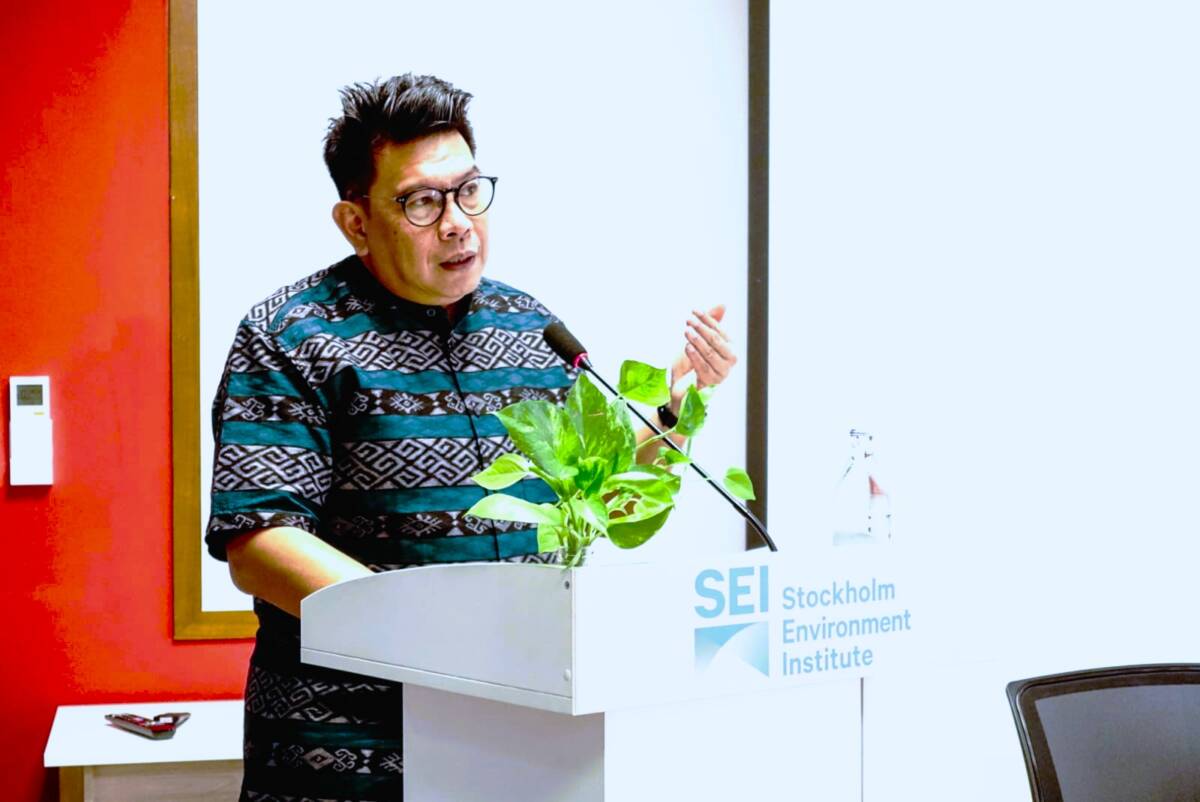Bangkok, October 1, 2025 – Southeast Asia is one of the region’s most vulnerable to the impacts of the climate crisis due to rising global temperatures. Countries such as the Philippines, Indonesia, Thailand, and Vietnam have already recorded an increase in hydrometeorological disasters, increasingly erratic weather patterns, and sea level rise.
The continued dominance of fossil fuels in Southeast Asia’s energy sector contributes to significant growth in GHG emissions. The Institute for Essential Services Reform (IESR) calculates that without policy intervention, fossil fuels are projected to continue to dominate 80% of Southeast Asia’s energy landscape. This will contribute to rising emissions and global temperatures.
Reliance on fossil fuels will cause Southeast Asia to pay higher health costs and the impacts of increasingly frequent hydrometeorological disasters. These avoided costs could be allocated to health, education, and clean energy incentives.
In a panel discussion titled “After the First Global Stocktake: Fostering Southeast Asia’s Energy Transition Agenda Toward the 1.5-degree Target of the Paris Agreement,” Fabby Tumiwa, CEO of the Institute for Essential Services Reform (IESR), stated that the results of the first global stocktake are a wake-up call that current global efforts are not on track to limit global temperature rise. If this situation continues, countries in the global south will bear the brunt of the impact.
“Southeast Asian countries are at a crucial moment in determining the direction of their economic growth. The choices are remaining dependent on fossil fuels and missing out on opportunities for sustainable economic growth or strengthening climate commitments. Strong climate commitments will protect people, position the region as a leader in global transformation, and seize the opportunity for higher and greener economic growth,” he said.
Fabby added that there are three main things ASEAN must do to ensure its climate action aligns with the 1.5-degree trajectory. First, increase the climate ambition and policies of Southeast Asian countries. Second, strengthen regional cooperation. Third, mobilize inclusive development. Inclusivity is crucial because the energy transition must generate green jobs, protect vulnerable communities and groups, and create opportunities for innovation.
The transition to a clean energy system is not a luxury—it is an urgent economic imperative. The transition away from fossil fuels is inevitable, and the Southeast Asian region must take a proactive approach to the transition to maximize its benefits and avoid the costs of maintaining fossil fuel infrastructure.
Natharoun Ngo S., Regional Director of EnergyLab Asia, added that it is important to foster energy transition initiatives at the Southeast Asian scale.
“There will certainly be many challenges, but by increasing collaboration and cooperation at the Southeast Asian level, we will be able to share good practices and meet the needs of each country,” said Ngo.

